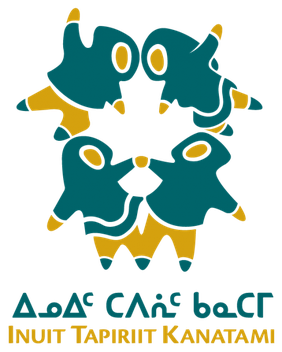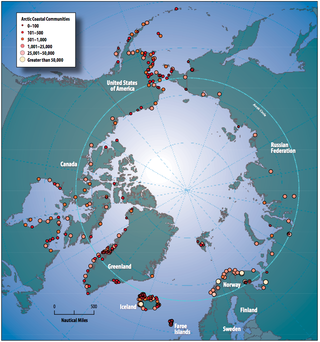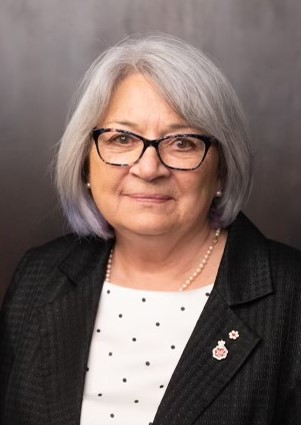Related Research Articles

James Jude Orbinski is a Canadian physician, humanitarian activist, author and leading scholar in global health. Orbinski was the 2016-17 Fulbright visiting professor at the University of California, Irvine, and as of September 1, 2017, he is professor and inaugural director of the Dahdaleh Institute of Global Health Research at York University in Toronto, Ontario, Canada. He was previously the CIGI Chair in Global Health Governance at the Balsillie School of International Affairs and Wilfrid Laurier University (2012-2017), Chair of Global Health at the Dalla Lana School of Public Health (2010-2012) and full professor at the Faculty of Medicine, University of Toronto (2003-2012), where he was the founding Saul Rae Fellow at Massey College. Orbinski's current research interests focus on the health impacts of climate change, medical humanitarianism, intervention strategies around emerging and re-emerging infectious diseases, and global health governance.
Peter Munk was a Hungarian-Canadian businessman, investor, and philanthropist. He was the founder and chief executive officer of a number of high-profile business ventures, including the hi-fi electronics company Clairtone, real estate company Trizec Properties, and Barrick Gold, the world's largest gold-mining corporation.

Inuit Tapiriit Kanatami, previously known as the Inuit Tapirisat of Canada, is a nonprofit organization in Canada that represents over 65,000 Inuit across Inuit Nunangat and the rest of Canada. Their mission is to "serve as a national voice protecting and advancing the rights and interests of Inuit in Canada."
The Munk School of Global Affairs and Public Policy at the University of Toronto is an interdisciplinary academic centre. It offers various research and educational programs related to the field of globalization. It is located in Toronto, Ontario, offers master's degrees in global affairs and public policy, and a master's degree in European, Russian and Asia-Pacific studies. This school is a member of the Association of Professional Schools of International Affairs (APSIA). It also works in group of schools that educate students in international affairs. The Munk School's Master of Global Affairs program typically receives 500 and 600 applicants per year and offers 80 students entry into its program.

Sheila Watt-Cloutier is a Canadian Inuk activist. She has been a political representative for Inuit at the regional, national and international levels, most recently as International Chair for the Inuit Circumpolar Council. Watt-Cloutier has worked on a range of social and environmental issues affecting Inuit, most recently, persistent organic pollutants and global warming. She has received numerous awards and honours for her work, and has been featured in a number of documentaries and profiled by journalists from all media. Watt-Cloutier sits as an adviser to Canada's Ecofiscal Commission. She is also a senior fellow at the Centre for International Governance Innovation.

The Arctic Council is a high-level intergovernmental forum that addresses issues faced by the Arctic governments and the indigenous people of the Arctic region. At present, eight countries exercise sovereignty over the lands within the Arctic Circle, and these constitute the member states of the council: Canada; Denmark; Finland; Iceland; Norway; Russia; Sweden; and the United States. Other countries or national groups can be admitted as observer states, while organizations representing the concerns of indigenous peoples can be admitted as indigenous permanent participants.
Patrick Johnston is a Canadian administrator, policy analyst and former politician. He was recruited by Liberal Party leader John Turner to contest the 1988 election for the party, but unexpectedly lost his nomination to a rival candidate supported by anti-abortion activists.
Thomas Sidney Axworthy, is a Canadian civil servant, political strategist, writer and professor. He is best known for having served as Principal Secretary and Chief Speechwriter to Canadian Prime Minister Pierre Trudeau. Axworthy is currently the Secretary General of the InterAction Council. Previously, he was president and CEO of the Walter and Duncan Gordan Foundation. He is a senior fellow at the Munk School of Global Affairs, Massey College, and the Bill Graham Centre of Contemporary International History, Trinity College, at the University of Toronto.
The Inuit Broadcasting Corporation (IBC) is a television production company based in Nunavut with programming targeted at the Inuit population of Nunavut. Almost all of its programs are broadcast in Inuktitut. Some are also in English. IBC shows centre on Inuit culture. The company has five production centers in Nunavut, all staffed by Inuit. Founded in the early 1980s, the IBC was the first indigenous-language television network in North America.

Circumpolar peoples and Arctic peoples are umbrella terms for the various indigenous peoples of the Arctic region.

Higher education in Nunavut allows residents of this Canadian Arctic territory access to specialized training provided at post-secondary institutions. There are some unique challenges faced by students wishing to pursue advanced training in Nunavut, a vast territory stretching across Arctic Canada from Hudsons Bay to the north pole. The territory was split from the Northwest Territories in 1999, following a successful plebiscite which affirmed Inuit desires to establish an independent political jurisdiction. Covering one-fifth of Canada's area and over 60% of its coastlines, the territory had a population of 31,153 in 2010.

Mary Jeannie May Simon is a Canadian civil servant, diplomat, and former broadcaster who has served as the 30th governor general of Canada since July 26, 2021. Simon is Inuk, making her the first Indigenous person to hold the office.

Arctic cooperation and politics are partially coordinated via the Arctic Council, composed of the eight Arctic nations: the United States, Canada, Iceland, Norway, Sweden, Finland, Russia, and Denmark with Greenland and the Faroe Islands. The dominant governmental power in Arctic policy resides within the executive offices, legislative bodies, and implementing agencies of the eight Arctic nations, and to a lesser extent other nations, such as United Kingdom, Germany, European Union and China. NGOs and academia play a large part in Arctic policy. Also important are intergovernmental bodies such as the United Nations and NATO.
The Arctic policy of Canada includes both the foreign policy of Canada in regard to the Arctic region and Canada's domestic policy towards its Arctic territories. This includes the devolution of powers to the territories. Canada's Arctic policy includes the plans and provisions of these regional governments. It encompasses the exercise of sovereignty, social and economic development, the protection of the environment, and the improving and devolving of governance.
The Arctic Council Indigenous Peoples’ Secretariat (IPS) is a secretariat for the six international Indigenous organizations affiliated with the eight-nation Arctic Council. The IPS does not represent indigenous peoples or their organizations, but assists those organizations in presenting their causes, and helps to disseminate information among them. IPS was established in 1994 under the auspices of the Arctic Environmental Protection Strategy (AEPS). It was around the same time that the category of Permanent Participants was being developed and applied to the three indigenous peoples’ organizations then observers in the AEPS. When the Arctic Council was established in 1996, both the Permanent Participants and IPS was reinserted into the new intergovernmental framework. Since commencing business in 1994, the role of the secretariat has been to facilitate contributions from the Permanent Participants to the cooperation of the eight Arctic states and to assist the Permanent Participants in performing, mainly communicational task.
Students on Ice Foundation is a Canadian charitable organisation that leads educational expeditions to the Arctic and Antarctic for international high school and university students. Its mandate is to provide youth, educators and scientists from around the world with learning and teaching opportunities in the polar regions, with the goal of fostering an understanding of, and commitment to building a more sustainable future.
The Arctic is a vast polar region comprising the northernmost parts of Canada, Norway, Greenland (Denmark), Sweden, Finland, the United States (Alaska), Iceland and Russia. In recent years, the Arctic has been at the forefront of political and social issues. Several matters have risen surrounding the issues of poverty and global warming and their effects on indigenous people in this region. Indigenous people in the Arctic statistically fall below their nation's poverty line.
Rosemarie Esther Kuptana, LL.D. is a Canadian Inuvialuit politician, Inuit rights activist, broadcaster and journalist. Besides serving with several Inuit organisations she was president of the Inuit Broadcasting Corporation. She lives in the Ottawa area and has three children.
The Arctic Institute – Center for Circumpolar Security Studies, often referred to as The Arctic Institute or TAI, is an international think tank founded in 2011 and headquartered in Washington, D.C. The Institute's mission is to inform Arctic policy through interdisciplinary, inclusive research that addresses the most critical issues in the circumpolar Arctic. TAI is composed of researchers from around the world. The University of Pennsylvania's Global Go To Think Tank Index has consistently ranked The Arctic Institute among the top one hundred best think tanks in the United States since 2016. Romain Chuffart has served as Managing Director since September 2022.
References
- ↑ "WWF Canada Water Week 2011". World Wildlife Fund. February 1, 2011.
- ↑ "Gordon, Walter Lockheart". The Canadian Encyclopedia 2011 Accessed Feb. 16,2011
- ↑ Susan Manwaring. "First Nations as Qualified Donees".
- ↑ "Yukon First Nations share tips on impact agreements". CBC News, Aug 14, 2014
- ↑ "Oilsands mining linked to Athabasca River toxins". CBC News, 2010-08-30.
- ↑ "Mackenzie River, the 'Amazon of North,' under threat". Toronto Star, By Paul Watson, June 22, 2013
- ↑ " Arctic security means more than Arctic sovereignty". Tony Penikett, The Globe and Mail, Jan. 26, 2011
- ↑ "Canada's North, South Agree on Arctic: Study". CBC News Jan. 25, 2011 Accessed Feb. 16, 2011
- ↑ Boswell, Randy. "Tory focus on Arctic Sovereignty Buoys poll results". The Vancouver Sun Jan. 25, 2011. Accessed Feb. 16,2011.
- ↑ Huhta, Kari (January 25, 2011). "Pohjoismaat ovat suosikkeja kumppaneiksi arktisilla alueilla" (in Finnish). Retrieved February 16, 2011.
- ↑ "Canadians 'support more troops to defend Arctic claims'". BBC News Jan. 25, 2011 Accessed Feb. 16, 2011
- ↑ Comte, Michael "Canadians prepared to fight for Arctic: survey". AFP Jan. 25, 2011 Accessed Feb. 16, 2011
- ↑ " World water crisis must be top UN priority: report". Phys.org, September 11, 2012
- ↑ Renata D'Aliesio. "Chrétien's call to Canada: Don't be afraid of water-exporting debate". The Globe and Mail Accessed March 25, 2011
- ↑ "Closure of Lauded Munk School Water Program 'Distressing,' Experts Say". The Tyee, Andrew Nikiforuk 19 Apr 2016